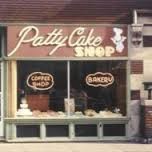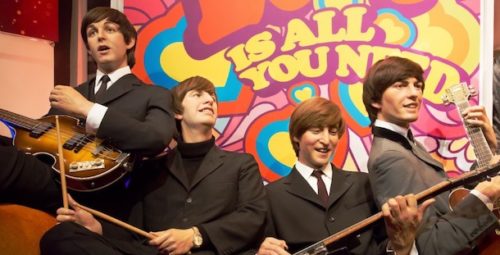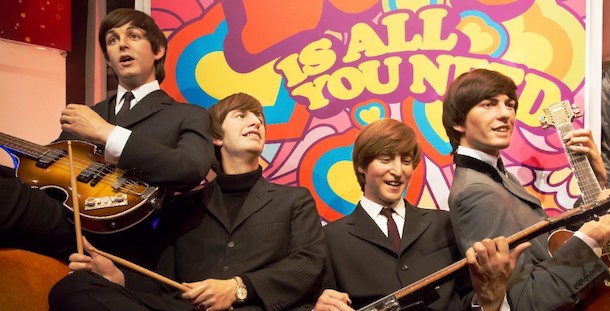For more about Gay Haubner’s life in the North Country, read the other chapters in her serialized memoir. The Post will publish a new segment each week.

Bridgeman’s was my preferred destination after elocution lessons. Halfway between Bridgeman’s and the Patty Cake Bakery lived yet another older woman eking out a living bringing culture to the clueless daughters of Duluth’s upper middle class.
Miss Miller provided instruction in elocution and deportment in the stuffy, old-fashioned living room of her first-floor duplex. The alpha girls of Miss Johnson’s fifth grade class, Nancy Erman, Debbie Sawyer, and Betsy Strauss, had discovered Miss Miller and concocted a plan to take lessons from her once a week after school, riding the bus from Congdon to her apartment. I yearned to be a member of this clique and here was the perfect opportunity. Nancy Erman and I had been off and on friends for years; my mother highly approved as Nancy’s father was the prominent Judge Erman. Debbie Sawyer was ethereally beautiful, with long Breck Girl hair. Betsy Strauss had a blind mother she stole cigarettes from, which was the most criminal act I could imagine a girl doing.
My mother tamped down her fears about young girls on their own on the dangerous Duluth city buses, exposed to the worst elements of society for all of the ten minutes it took us to travel to Miss Miller’s apartment, and got my dad to pay. Somehow, she also got wrangled into chauffeuring us all back home after the lessons.
Miss Miller taught us the proper, ladylike way to sit down, cross our legs, enter and exit a car (using two chairs pushed together), and the correct way to introduce people (younger person to older, lower rank to upper) as if we were prospective debutants or heiresses to lost titles. The real appeal of Miss Miller’s lessons was the chance to appear on stage in her annual student recital at the Duluth Playhouse. Our elocution lessons — proper pronunciation, diction, a firm, confident speaking voice pitched at a pleasant register — were based in memorizing and performing what can only be described as doggerel, although Miss Miller referred to them as “your poems.” I was given a chestnut from the 20’s or 30’s, “I Wish my Dad Were the Janitor Man,” that is so firmly rooted in the past that no Google search can turn it up. I still have the first four lines memorized:
I wish my dad were the janitor man.
Then I could run for beer with a bright tin can.
Sample all the goodies that the grocer brings.
Dig into the trashcan and find good things.
I finally got to perform this ditty in front of a fawning audience of parents, wearing my best dress with an artful slap of fake dirt on my cheek. Of course, like everything else in my life, my sister Lani had to horn in on my elocution lessons, although she was not in the same class with us Golden Girls, thank goodness. At the recital, Lani performed the classic “After my Bath” (“After my bath I try try try/To wipe myself till I’m dry dry dry”) wrapped in a towel. I was terrified that after years of prancing around nude in our bedroom Lani would finish her act by whipping the towel off her 7-year-old Biafran refugee body, and belt out “Let Me Entertain You” clad only in her Carter’s cotton panties.
For the weeks running up to the recital, I was in heaven, not from the prospect of stardom, but from being part of the fifth grade girl in-crowd, rising from the depths of the young Ebenezer Scrooge horror of being left alone in the classroom. I lived for Wednesdays, when we boarded the bus in front of Congdon and rode by ourselves, like teen-agers, our heads huddled together in the far back seat. The hour with Miss Miller was pleasant enough. But pure bliss was the time I spent with the popular girls after elocution class. As part of this sweet deal, all of us had pocket money to spend at Bridgeman’s or the Patty Cake Shop. As we girls slouched together on the bus stop bench, talking and snacking and waiting and waiting and waiting for my mom to show up to drive us home, I felt an intense glow of belonging, combined with a sugar rush and the sensual pleasure of licking an ice cream cone or the chocolate icing off an éclair. I recognized that feeling the first time I fell in love.
Being pre-teen girls, we had two topics of conversation: the boys we had crushes on and sex. I magnanimously allowed one of the other girls to like Jim Deere since I got to ride in a car with him every day, to and from Enrichment. We had a hard time coming to agreement on the actual details of the sex act, but we knew you had to take all your clothes off. My mother’s pregnancy gave me some authority in the field; no one else could imagine their parents doing it. Betsy’s parents couldn’t possibly have sex; they had grey hair! Eventually my mom would drive up, trying to be nice to my friends while gritting her teeth while Lani launched herself like an acrobat from dashboard to back seat, and the glory would be over until next week.
The snakes in this garden were the Beatles. Sleepy, unchanging Duluth — stuck up in a forgotten corner of Minnesota, where pizza was pronounced pisa and was often topped with pineapple and ham, where the Twist had taken two years to arrive — had begun to catch up with the rest of the country. It started on November 23rd, where in the middle of the day Miss Johnson’s class was told “The President’s been shot,” and sent home to find our mothers weeping in front of the TV. For the first time we were experiencing the exact same thing as the rest of the country, connected through Walter Cronkite and Huntley and Brinkley. Then Beatlemania arrived overnight, when Ed Sullivan brought us “Something for all you young people out there,” catchy music made by four really cute guys.

I was a young fogey, dimly aware of pop music. Our car radio was constantly tuned to Duluth’s one and only music station, WEBC, my mom warbling along to “Rambling Rose” while my sister and I stopped our ears. Along with Nat King Cole, WEBC played Beach Boys and Englebert Humperdink, the 4 Seasons and Connie Francis, whatever was on the Top 40 that week, sprinkled with a few Golden Oldies. I listened with half an ear, unless the “Monster Mash” or “Alley Oop” or another silly novelty song came on. At home when I wanted to listen to music I put “Oklahoma!” or “The 1812 Overture” on my dad’s record player.
I didn’t see the Beatles that fateful Sunday night. We must have been late getting back from Carlton. My dad loved Ed Sullivan, but I had heard all the singers on the radio, thought the dancing boring, and couldn’t grasp what made the comedians funny. Only when Topo Gigio or the guy who spun plates on sticks to “The Sabre Dance” came on would my dad holler at me to come watch with him.
But at noon on Monday, February 10th, I walked into a classroom besotted (on the female side) with the Beatles. Our afterschool bus rides to elocution lessons immediately devolved into “Which Beatle do you like best?” I had a hard time telling John from Paul. I was much more interested in discussing what exactly happens when you get your period or the attractions of the real boys in our class. “Which Beatle do you like?” was like asking my favorite continent. It may have been that not only was I a year younger, but also a slower developer, so that these infatuations with unobtainable objects bewildered me. For the rest of the girls, it was as if the Beatles had rocketed them into puberty: Nancy went from playing with troll dolls to imagining how George would kiss. Debbie and Betsy sparred over Paul. I answered “John” or “Ringo” depending on which way the argument was going.
With the coming of the Beatles, the door rang shut on my childhood. Now after elocution class instead of going for ice cream or pastries, we headed to the candy racks at the small 5 & 10 in the nearby shopping plaza, where Nancy, Betsy, and Debbie agonized over which pack of Beatles cards to buy: the one featuring their favorite Beatles? Or a pack with all four of them, playing their instruments or mugging in zany poses? After these major purchases, we went back to our usual bus bench to wait and wait and wait for my mom; Nancy, Betsy and Debbie would compare and swap cards while rhapsodizing over the charms of their favorite Beatle. My mother’s daughter, I couldn’t imagine spending 10 cents for FOUR PIECES OF CARDBOARD that didn’t even come with a stick of gum and so I didn’t participate in the fun. I just didn’t get it. I slouched on the edge of the bench gnawing on a wax Nik-L-Nips bottle and longed for the Beatles to quickly pass into history.
The death blow to elocution lessons and my short-lived status as one of the popular girls came a week after our elocution recital. After school let out, the four of us boarded our usual Superior Street bus to Miss Miller’s to find that a group of big girls from Ordean Junior High occupied our favorite back seat. We crowded into a pair of seats in front of them, the Beatle cards came out, and I glumly stared out the window. I heard the girls in the back shrieking in those high pitched voices so perfected by fourteen-year-olds, and I heard the bus driver yelling at them to quiet down, which they did for ten seconds before bursting into even louder hysterics. I barely noticed the pair of biddies sitting in the front of the bus who kept turning around, casting the evil eye to determine where the mayhem was coming from.
The next afternoon the most unexpected event in the history of Congdon Elementary occurred: Nancy, Betsy, Debbie and I were called into the principal’s office. Never before had a single girl been summoned to appear before Miss Brown; her judgment and wrath was saved for the worst miscreants, the boys who fought or cursed or shoved the kid drinking from the water fountain. (“You could have broken his teeth!”)
The two elderly women in the front of the bus were good friends of Miss Brown. They had rushed to the phone as soon as they got off the bus and had been able to describe the four girls who got on at Congdon well enough for Miss Brown to quickly make an ID. She was shocked that any Congdon girl would be so disruptive in public, but girls like us? A students! We had disgraced our school. Miss Brown was not as shocked as we were. We were bug-eyed and dry-mouthed and suddenly all speaking at the same time. It was an unimaginable horror to be so unjustly accused; years later reading about the Dreyfus affair or The Count of Monte Cristo made me sweat with anxiety. It was no use crying “It wasn’t us! It was the girls in the back!” even if we had done so calmly and one at a time instead of sobbing and hiccupping. It was an adult’s word (two adults actually, members of the Crabby Old Ladies Club) against ours. We didn’t have a chance. Our parents were to be informed and we were banned from riding the city bus after school.
My mother believed me and was almost sympathetic, but not enough to face Miss Brown whose word was law. Besides, it saved her from having to drive all of us home from Miss Miller’s every Wednesday. Lani’s elocution lessons also came to an end.
At the age of 10, I learned there is no justice in this world.
Become a Saturday Evening Post member and enjoy unlimited access. Subscribe now




Comments
I am a Beatles freak still. Have an Abbey Road front license plate, Beatles socks and Beatles vinyl.
I still don’t like The Beatles or trading cards, and I would have flunked charm school if that had been an offering, but the way Gay described fitting in with the popular girls, if only for a brief period, was so reminiscent of the ebb and flow of middle school.
I still have my Beatles cards…lol
Brings back Charm School memories. And points out how ridiculous this whole phenomenon probably was.